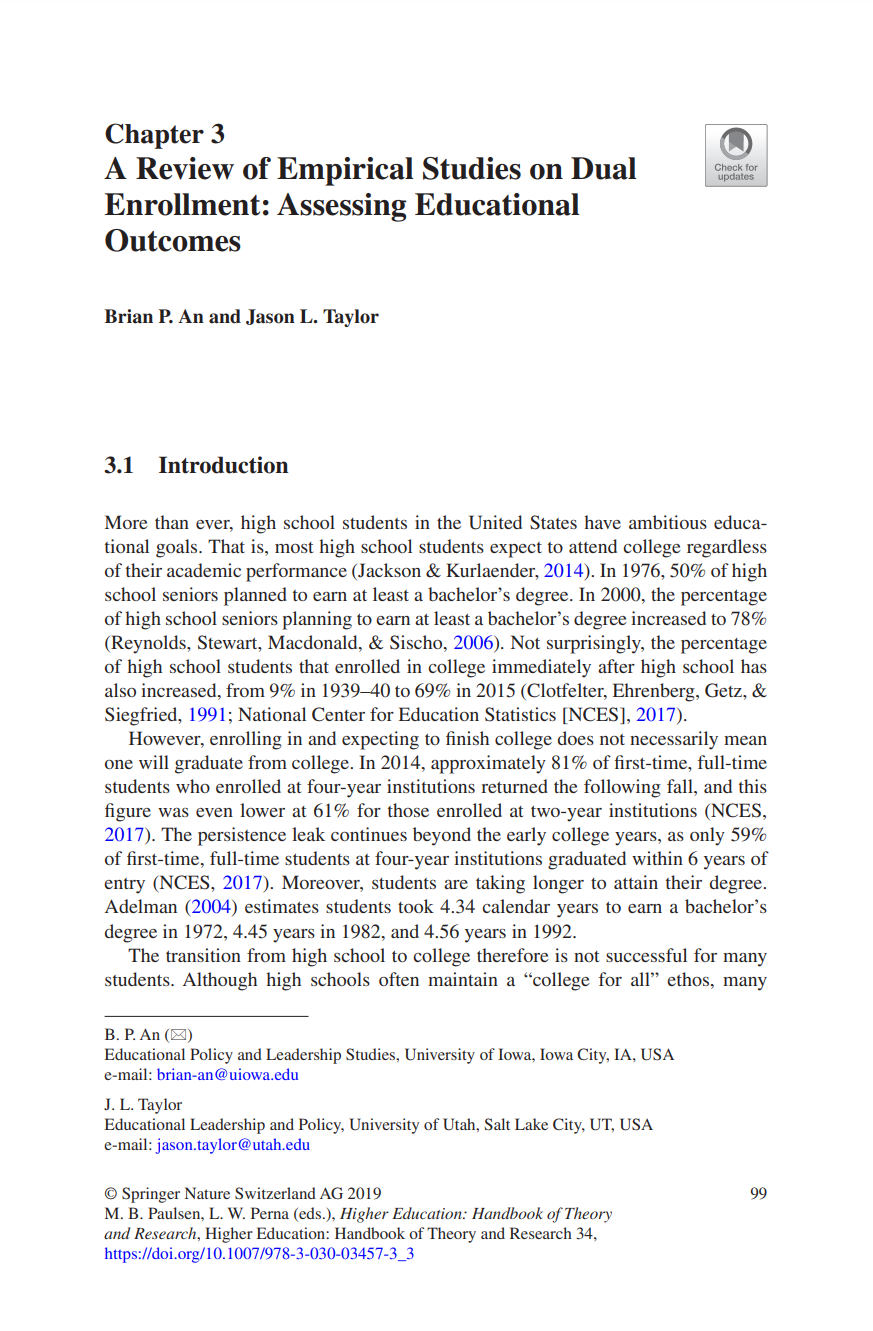A Review of Empirical Studies on Dual Enrollment: Assessing Educational Outcomes
Author(s): Brian P. An, Jason L. Taylor
Publisher: Higher Education: Handbook of Theory and Research, Springer
Year: 2019
Access Publication*Subscription Required
Description
In the past couple of decades, the number of high school students taking college courses via dual enrollment has increased dramatically, and it is becoming more common for high school students to graduate with a substantial number of college credits. We review the empirical studies on dual enrollment, paying attention to research that centers on the student and student outcomes. Our study differs from prior works that provide a comprehensive account of dual enrollment in that these papers either have focused on a general overview of the literature or have concentrated on a specific domain of dual enrollment policy. Because we focus on the student, we can spend more time analyzing the condition of the empirical research. This chapter examines evidence about who participates in dual enrollment and the relation between dual enrollment and educational outcomes. It explores differences in dual enrollment participation and outcomes by student demographics, examines what accounts for differences in dual enrollment outcomes, and compares outcomes from dual enrollment to Advanced Placement. The chapter concludes with directions for future research.

